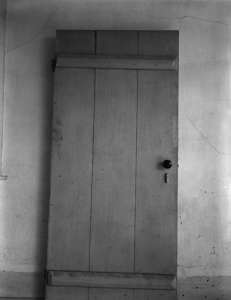Although I’m writing this post in response to recent arguments over who’s allowed to call themselves polytheists, I’ll start off by saying that I don’t have much invested in that fight. Each night, after I make offerings to the god-forms I love, I recite the Shema (“Hear, O my people: The Goddess is everywhere and abound in everything; the many are one”*). In other cultures, the question of what to call my practice wouldn’t be complicated. Our subculture has chosen to make it complicated. I’m personally not married to the term polytheist, so I don’t really care. Witch is the name that lights a fire in me.
But this whole thing about polytheism writ large–wherein the constant refrain from hard polytheists** to everyone else is “we’re not claiming ownership over the word polytheist, we’re just telling you you’re not allowed to use it”–reminds me a lot of an identity crisis I went through myself for many years. I share it here in the hopes that it’ll shed a little light on the anger and hurt feelings on both sides, and possibly play some tiny part in finding a way out of this mess.
Anyway. I have a secret that I dare not share in many Jewish communities. No, it’s not that I’m a witch–I don’t broadcast that, but when people find out, they’re surprisingly cool with it. (It helps that lots of Jews practice fusion spiritualities.) No, it’s not that I’m against the occupation of Palestine–although I’m even more selective about who I share that with than I am about the witchcraft thing. The secret, which would get me promptly kicked out of a lot of Jewish communities, is that by the standards of Jewish law, I’m not actually a Jew.
As you probably know, Jewish identity is matrilineal–that is, you’re not a Jew unless your mother is. The explanation for this law is tenuous at best, and Melanie Kaye/Kantrowitz theorizes that it has more to do with rape in the diaspora than it does with some divine order, but a lot of Jews take it very seriously. My dad is Jewish, but my mom isn’t. Even Jews belonging to the Reform movement, in which I theoretically meet the criteria for Jewish identity, become surprisingly fervent about Jewish law the moment they find out about my mom.
I take my Judaism and my Jewishness very seriously. I speak Yiddish. I pray daily. Hell, in three years I’ll be ordained in a Jewish tradition! I even look the part; people can easily tell I’m Ashkenazi, and I’ve born the brunt of casual antisemitism because of it. When I saw Aidan Kelly’s post about how his wife claimed a Jewish identity after finding out her great-grandmother was Jewish, I felt immensely sad–not because of her specifically (Mazel tov, and welcome back to the tribe!), but because my people will immediately accept someone who has literally never done a Jewish thing in her life, but insist on rejecting me until I “convert” to what I already am. Every time I let my guard down–perhaps even with this post–it seems there’s someone there to get that telltale quizzical look on their face and tell me that I’m not actually a Jew. As if they can’t understand how someone with Yiddish-speaking family members and family lost to the Holocaust could possibly carry this identity. As if I were a dog claiming to be a cat.
On one level, this insistence on matrilineal descent is simply adherence to the law that defines our religion. If you decide that one ancient law should be repealed, then that opens a pretty scary floodgate (if this one, why not that one? or that one? or that one?), so most Jewish communities recognize Jewish law as nonnegotiable. If a law really doesn’t make sense, then we reinterpret it until it does. (That’s how you get weird practices like shaving with an electric razor but not a regular one, because razor blades are forbidden but the mechanism in electric razors is closer to scissors, which are allowed.)
But much of this fervent adherence to the law has its roots, I think, in the dangers inherent in diaspora. Diaspora makes a community porous, with boundaries that can become ambiguous. If boundaries become ambiguous, then the community becomes ill-defined. If the community becomes ill-defined, then the community risks dissolving altogether. This isn’t an abstract fear. It has happened to countless peoples throughout history. So, since we don’t have a temple or, until recently, a sovereign nation-state, most Jews communities define themselves through the law. The Torah is the temple.
If you’ve ever wondered why older Jews freak out over intermarriage, well, now you have some idea.
I’ve come to suspect that when Jews tell me “you’re not actually a Jew,” many of them honestly think that they’re simply defining themselves. Their thought process doesn’t extend far enough to consider that their words might have any sort of emotional effect on me–or a material effect on my life.

Well, it does. It means that I’m closeted in many Jewish environments. When I receive ordination and start performing life cycle rituals, I’ll probably be closeted a majority of the time. It’s not unrealistic to fear that people might demand a refund if they find out that a “fake” Jew led their wedding ceremony. As many of you know, being closeted really sucks.
Likewise, I don’t think a lot of hard polytheists realize that telling someone else that they’re not a polytheist has a real visceral effect on that person. Surely it’s just an intellectual misunderstanding, right? Surely, once the “genuine” polytheist explains what (they’ve decided) actual polytheism is to the interloper, then the interloper will kindly give up the label! Right?
What these people fail to understand, though, is that those “other” polytheists aren’t just trying to climb on a bandwagon because it’s cool. The term polytheist resonates just as deeply and beautifully for them as it does for the hardliners. It’s their truth. It’s their reality. They’re being told that they’re not allowed to name their own reality.
And I mention the diaspora issue because I know why hard polytheists feel so threatened. Believe me, I know. The danger of dissolution is very real, and there are atheist Pagans out there who are hurling slurs and insults over the fence. I don’t know why some people feel the need to say “you’re crazy if you think your invisible friends are real,” and I wish I could understand why they feel they can then turn around and demand acceptance. This behavior is baffling to me.
Anyway, at the beginning of this post I expressed hope that maybe my experience could help, in some small way, find a path out of all this. That hope is probably ludicrously far-fetched, but let me tell you how I finally reconciled my identity.
After my daughter was born, I heard about a secular Yiddish group with an infant and toddler program. When I attended for the first time, I found an incredible community–multiracial and multicultural, with beliefs ranging from atheist to conservative Jewish to Wiccan. When the group facilitator opened a discussion for parents about Jewish identity, I tentatively told them about being half Jewish, about others dictating my reality to me.
The facilitator chuckled and nodded. “Right,” she said. “You’re going to tell me what my identity is? Well, now let me tell you what your identity is!”
It was an incredible moment of validation–an acknowledgement of how silly and pointless it is to try to control how others define themselves.
So my solution, in the end, was to find my community, distance myself from what the hard-liners were saying about me, and focus my efforts on doing the Judaism that I love. I wasn’t doing it for them, to prove that I was real, but for me, to enrich my life and serve divinity. Yeah, “real” Jews continue to fume over me in their own spaces, but I found that once I stopped engaging with them, they lost the ability to really affect me. I joined the many half-Jews who, by simply naming our realities and living our lives, have gained visibility and created robust spaces for ourselves. It’s not so weird to be a half Jew anymore. The hardliners lost a little of their power over the Jewish community at large, but–surprise, surprise!–our existence has never come close to endangering their ability to do Judaism their way. The only measurably negative effect on them has been their shrinking communities–an effect that they 100% opted into because of their decision to exclude us.
So am I saying that hard polytheists and soft/squishy/humanist/Jungian/etc. polytheists should just start ignoring each other? Well, not really. I mean, kind of. Perhaps each camp needs a little time to define and strengthen themselves before they can productively interact with each other. Perhaps each needs some privacy (not isolation–just privacy) to develop their practices, grow into themselves, and internalize the fact that the mere existence of the other doesn’t pose a threat.
Perhaps. I am, after all, saying this as somewhat of an outsider. Plus, seeing as I can count all the major players in the debate on one hand, I suspect that the whole controversy is much smaller than it looks. I think the vast majority of Pagans are happily working with their gods and not paying attention to what’s being said on a few blogs.
The point is this: when it’s clear that someone fundamentally doesn’t get what you’re doing, then continually fighting back is going to bring diminishing returns. Sometimes it’s worth simply walking away, even if they’re saying about you makes your skin crawl. Of course, if they come after you, that’s a different matter–but if you’ve put your energy into building your own vibrant community, then you’ll have some strong defenses.
You really can just walk away. It doesn’t have to be forever.
Just food for thought from a happy halfbreed.
* Adapted from Marcia Falk’s Book of Blessings.
** Some hard polytheists have begun to claim that we shouldn’t use the term hard polytheism to describe their practice because what they’re doing is just plain polytheism, period. This argument is almost identical to the claim, by many Orthodox Jews, that they’re the only Jewish denomination that’s actually doing Judaism. In other words, Reform Jews aren’t doing Judaism wrong; rather, they’re not doing Judaism at all. It’s an attempt to privilege one’s own viewpoint over all others by controlling language, and I use the term hard polytheist here unapologetically.
Click here to follow Asa West on Facebook, and click here to book a tarot reading!














